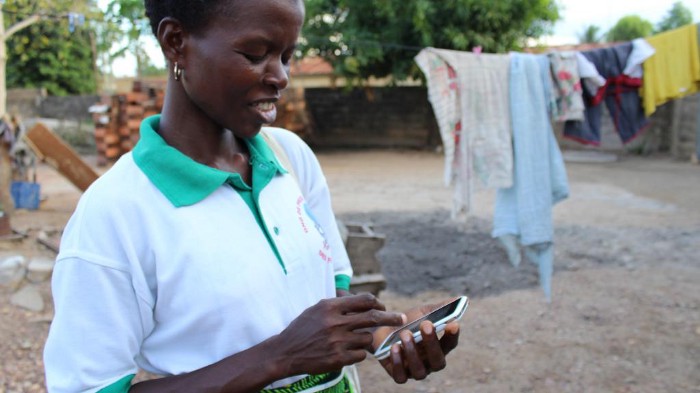The first case of COVID-19 in Togo was announced on March 6th, 2020. As of April 27, 2020, there have been 98 confirmed cases, including 62 recoveries and 6 deaths. Within days of the announcement of Togo’s first COVID-19 case, misinformation began to circulate primarily through the use of messaging platforms such as WhatsApp. Integrate Health staff were quickly alerted to a number of rumors about the pandemic ranging from the origin of the virus, to risk perceptions, such as that Africans could not become infected with the virus, or that everyone should avoid vaccines. Our staff felt that these messages represented a major barrier and could prevent individuals from taking the precautions necessary to stop the spread of COVID-19.
In response, Integrate Health’s Program team deployed a risk communications strategy aimed at disseminating accurate information. Community Health Workers received training on the pandemic and preventative measures in order to disseminate correct information before each patient visit. Integrate Health also funded the dissemination of information through other trusted sources including radio emissions in local languages and via local village drummers who are traditionally used to spread important news and information.
To complement the risk communications strategy, and to better understand several factors about awareness of COVID-19, we deployed a telephone survey among 134 Togolese citizens living in the communities where Integrate Health works. The telephone survey took about a week to adapt, program, pilot and launch. The question list was based on the WHO technical guidance for monitoring knowledge, risk perceptions, preventive behaviors and public trust in the current COVID-19 outbreak. It collected information regarding sources of information on COVID-19; knowledge of COVID-19 symptoms; beliefs about effective self-protection measures; and behaviors such as hand-washing and social distancing and was designed to be completed in approximately ten minutes.
The survey revealed that all of the respondents were aware of the COVID-19 pandemic and were somewhat or very worried. The vast majority of respondents also noted that they are taking actions as a result of the COVID-19 pandemic to protect themselves and their families including washing their hands more frequently with soap, staying at home as much as possible, social distancing and coughing into their elbow or a tissue. The respondents cited that their most utilized and trusted sources of information include the radio, television, social networks, community health workers and public awareness events. More than 90% of respondents noted that they considered their Community Health Worker to be a trusted source of information.
Both women and men reported the need to leave the home but for distinct reasons. For example, more women reported needing to leave to get food and water and more men reported needing to leave to go to work. This suggests that men and women may experience distinct levels of risk that may be important for prevention efforts.
Integrate Health prioritizes the health of women and children and utilizes data to improve access and quality of maternal and reproductive health care services. This data has and will continue to drive Integrate Health’s COVID-19 response. Additionally, 90% of Integrate Health’s Community Health Workers are women; as frontline health workers, they are more vulnerable to exposure. Integrate Health Community Health Workers have always used personal protective equipment including surgical gloves and hand sanitizer. During the COVID-19 pandemic, they are also using masks and face shields and have altered their workflows to reduce risk. In the community, Integrate Health is providing more options for hand washing, including installing hand washing stations at water pumps and ensuring that women are equipped with the accurate knowledge they need to protect themselves and their families.

This is the first time that Integrate Health has conducted a telephone survey for data collection. The quick turnaround between the adaption and launch of the survey indicates to us that this is a feasible tool for further research, particularly in times of crisis. Integrate Health is deeply committed to ensuring a proactive, sufficient response that not only prepares health centers and Community Health Workers but continues to provide care particularly for women and children.
A few things to note: This was a descriptive study, and therefore not meant to draw inferences based on the sample size. The sample size of respondents is small and may not be representative of the entire country, region or district demographics. Furthermore, the phone numbers for all respondents were sourced from a population being served by an ongoing Community Health Worker program. and as a result, the data may not be representative of individuals that do not have access to cell phones.
This is a series written by Integrate Health’s Chief Operating Officer, Patrick Aylward. Click here to read the first post in the series. As Integrate Health continues to respond, we aim to share lessons learned from our experience with the global community. If you would like to stay up to date with our actions, please visit our website, or follow us on Twitter,Facebook, LinkedIn.
